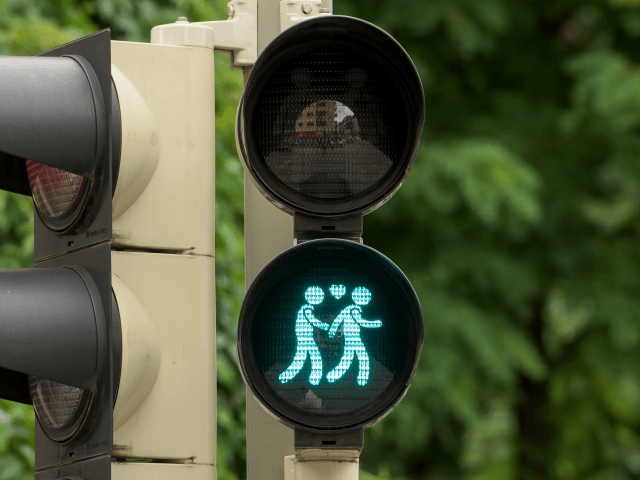Several Catholic parishes in Austria offered special Valentine’s Day blessings for same-sex couples this year as part of a pastoral outreach to homosexuals.
“Love between two equal people is willed by God and thus is already blessed,” declared an article in KirchenZeitung, the newspaper of the diocese of Linz, in northern Austria, in reporting on the work of the diocesan task force for the pastoral care of homosexuals.
“God is love. There cannot be any restrictions,” said Irmgard Lehner, parish assistant in the church of St. Francis in Wels in explaining why same-sex couples are equally welcome to receive a blessing. “Every person should feel welcome with us as he or she is,” she said. To avoid ambiguity, the parish explicitly advertised that the church blessings “are offered to all lovers in all life situations – including lesbian and gay couples.”
The pastor of the nearby Linz Ursuline Church, Father Franz Harant, similarly holds out the possibility of blessings to same-sex couples, insisting that no one should be excluded. “The blessing is bestowed universally. We have nothing to forbid,” said Harant. The priest sees his position to be in harmony with Pope Francis, who in his teaching letter Amoris Laetitia says that “every person, regardless of sexual orientation, ought to be respected in his or her dignity and treated with consideration,” the paper states.
There is a desire and many concrete requests by same-sex couples for blessings in the context of a church celebration, reports the task force. Nonetheless, despite the outreach, few homosexual couples have availed themselves of the church blessings, a result that Lehner attributes to “taboo.”
German Cardinal Reinhard Marx recently made headlines by saying that there can be no universal rule excluding church blessings for homosexual couples. When the Catholic News Agency stated that the cardinal had “endorsed” such blessings, the Munich Archdiocese responded with a “correction,” although did not deny that Marx would not rule out the possibility. It is something that should be decided locally, he said.
In response, Philadelphia Archbishop Charles J. Chaput reminded the cardinal of Catholic teaching regarding blessings, underscoring that such an act is “morally forbidden.”
While on the surface the idea of blessing same-sex couples “may sound generous and reasonable,” he wrote, “the imprudence of such public statements is—and should be—the cause of serious concern.”
Conferring a blessing on a gay couple “would cooperate in a morally forbidden act,” he added, and would “undermine the Catholic witness on the nature of marriage and the family.” It would, moreover, “confuse and mislead the faithful.”
The problem behind such a misguided act is that blessing persons “in their particular form of life effectively encourages them in that state—in this case, same-sex sexual unions,” he said.
While we need to treat all people with respect as children of God with inherent dignity, including persons with same-sex attraction, he said, “there is no truth, no real mercy, and no authentic compassion, in blessing a course of action that leads persons away from God.”
“To rashly, or deliberately, cause confusion about a significant matter is a serious failure for any person in authority,” the archbishop wrote, and that is why “leaders have a special duty to be clear, honest and prudent in what they do and say.”
Other German bishops who recently suggested that church blessings for gay couples should not be ruled out were Bishop Franz-Josef Bode of Osnabrück, the deputy chairman of the German bishops’ conference, and Bishop Dieter Geerlings of Münster.
Follow Thomas D. Williams on Twitter Follow @tdwilliamsrome

COMMENTS
Please let us know if you're having issues with commenting.